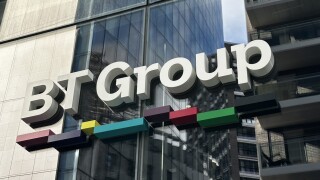Along with the deal, listed company Bango gets new relationships with Telefónica, América Móvil and Deutsche Telecom, and extends relationships with Vodafone, Singtel, Softbank and Airtel India.
Bango said that the deal would bring US$3.5 billion of additional end user spend through the Bango platform and will deliver an additional $16 million revenue a year.
Bango CEO Paul Larbey (pictured) said: “Acquiring DoCoMo Digital strengthens our position as a world leader in data-driven commerce. The decision by NTT DoCoMo to transfer its global payments business to Bango is a major endorsement of our technology in the fast-growing digital economy.”
NTT DoCoMo’s carrier billing services for app stores and merchants will migrate to the Bango platform. This platform agreement is in addition to the existing Amazon physical goods carrier billing agreement between NTT DoCoMo and Bango.
At completion, DoCoMo Digital had a cash balance of €3.1 million.
Bango said it expects the acquisition to be earnings accretive in the first full year, “and materially earnings accretive once the integration has been fully completed”.
NTT DoCoMo did not say why it had disposed of the service. Tsutomu Tahara, general manager of its wallet service department, said: “We believe there is a big benefit for the digital payments industry in supporting a common platform technology. Bango is uniquely placed with market leading technology that will benefit our customers in Japan and our merchant partners worldwide. Bango’s role as an independent platform and trusted partner presents a great opportunity to accelerate growth of the global payments ecosystem.”
Bango expects to bring new users and more transactions to the platform. “This increases the pool of payment data available to create insights that help Bango customers focus their online marketing, accelerating their revenue growth,” the company said.
“This, in turn, drives more end user spend, fuelling the growth of Bango and everyone connected to the platform.”
Paul Larbey said: “Through the Bango platform, telcos can leverage the universal appeal of the world’s biggest online brands and digital merchants can immediately reach new customers. Both will benefit from data-driven insights, giving consumers greater access to goods and digital services.”






